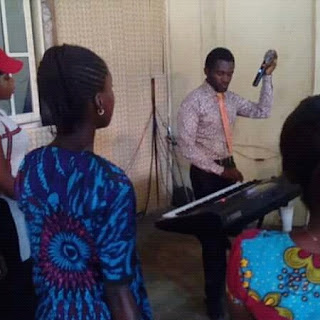Relax and be confident
✏ BECOMING A SUCCESSFUL MUSIC DIRECTOR/CHORISTER 🎵🖍 📖 Season 1. Episode 8. RELAX AND BE CONFIDENT 🎶 You don’t have to have all the answers, but you do need to back yourself. Even if you’re unsure what to call, just make a call and make it confidently. That way at least the whole team will go with you together, while possibly avoiding a train wreck! Trust your team and their ability. Stay calm and have fun! For live lessons and interactive class https://t.me/joinchat/HX75GgrDht71Bi9HvZhz6w














